Detroit Month of Design Round Table
 Read Below
Read Below
 Read Below
Read Below
Detroit Month of Design Round Table
From historic buildings reimagined through modern design to the flourishing local creative community, Detroit is emerging as a key hub for interior designers, architects, and creative professionals. We hosted a roundtable event featuring a diverse array of Detroit’s creative leaders, who provided valuable insights into the city’s evolving design industry and the wider creative scene. Hosted by Pophouse, the conversation revolved around Detroit’s rich design heritage, and how creative professionals can push boundaries to foster innovation. Participants included architects, designers, gallery owners, and business leaders dedicated to expanding Detroit’s influence as a national center for creativity and design. A key point of discussion was Detroit’s prestigious status as a UNESCO City of Design—the only city in the U.S. to hold this designation. While the city has gained international recognition, many at the event expressed that Detroit’s design community can still do more to leverage this honor. Below we have highlighted a few of the themes of the discussion.
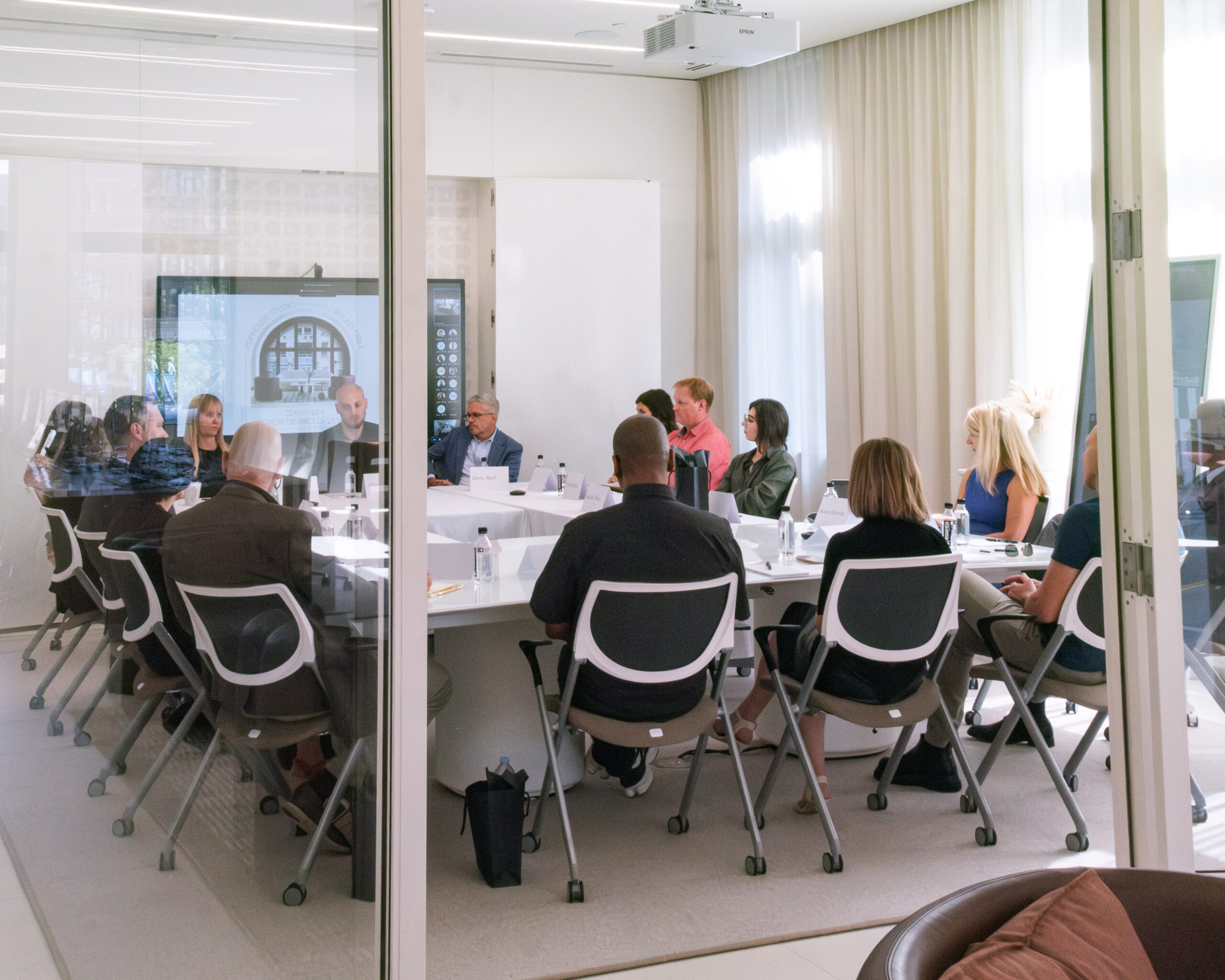
Collaboration emerged as a central theme, especially within the Detroit design community. Reggie Roland, president of District by Design, shared his vision for boosting the city’s design businesses by fostering partnerships between local firms and large corporations. Such collaborations are vital for Detroit’s creative economy, especially as the demand for innovative commercial and residential design continues to grow.
Isabel Weiss, owner of I.M. Weiss Gallery and an art appraisal firm, emphasized the need for cross-sector collaboration, noting how art and design can intersect to create meaningful spaces. By collaborating with local artists, Detroit’s interior designers can incorporate unique, locally sourced art into their projects, further elevating the city’s design identity. With the city’s architectural landscape evolving, interior designers and architects in Detroit are finding new ways to repurpose historical buildings while maintaining their cultural significance. Whether it’s revitalizing historic landmarks or creating modern office spaces, Detroit’s interior design firms are at the forefront of the city’s transformation, and thus have a responsibility to uplift local artists when selection materials and art for their spaces.
Detroit's interior design firms are at the forefront of the city's transformation.
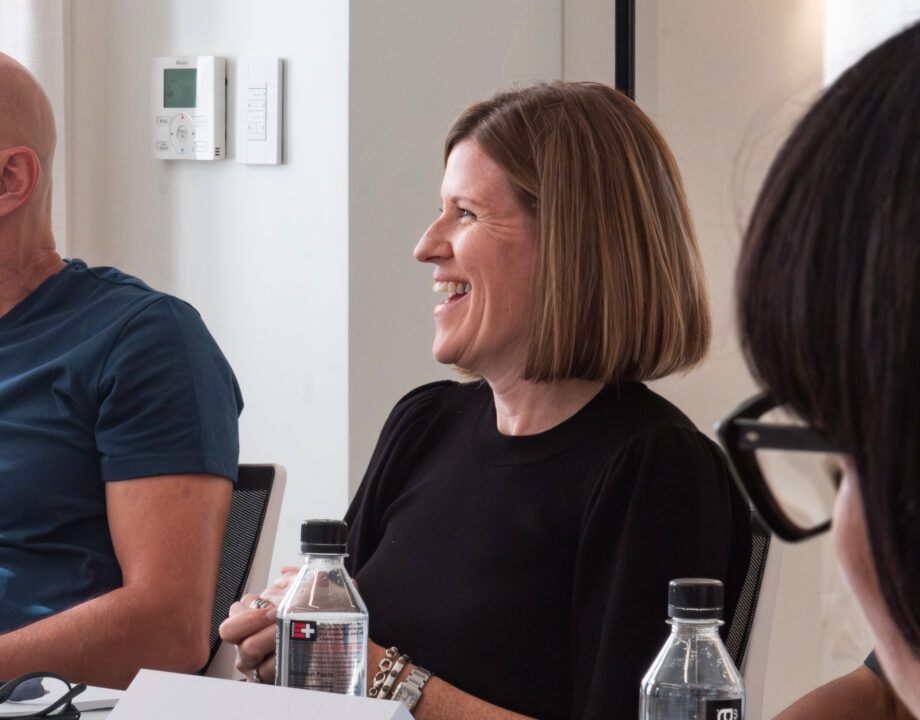
David Cowan, Chief Public Spaces Officer at the Downtown Detroit Partnership, highlighted the importance of public spaces in fostering creativity and design. Detroit’s public spaces, such as Capitol Park, provide platforms for artistic installations, showcasing the work of local talent. These areas not only serve as gathering points for Detroit’s community but also provide inspiration for Detroit design firms to explore new ideas and trends. Detroit’s public spaces have also become integral to the city’s design culture, offering firms a canvas to experiment with outdoor activations and innovative concepts. As Cowan pointed out, these spaces are central to Detroit’s design identity, providing a bridge between urban planning and interior architecture.
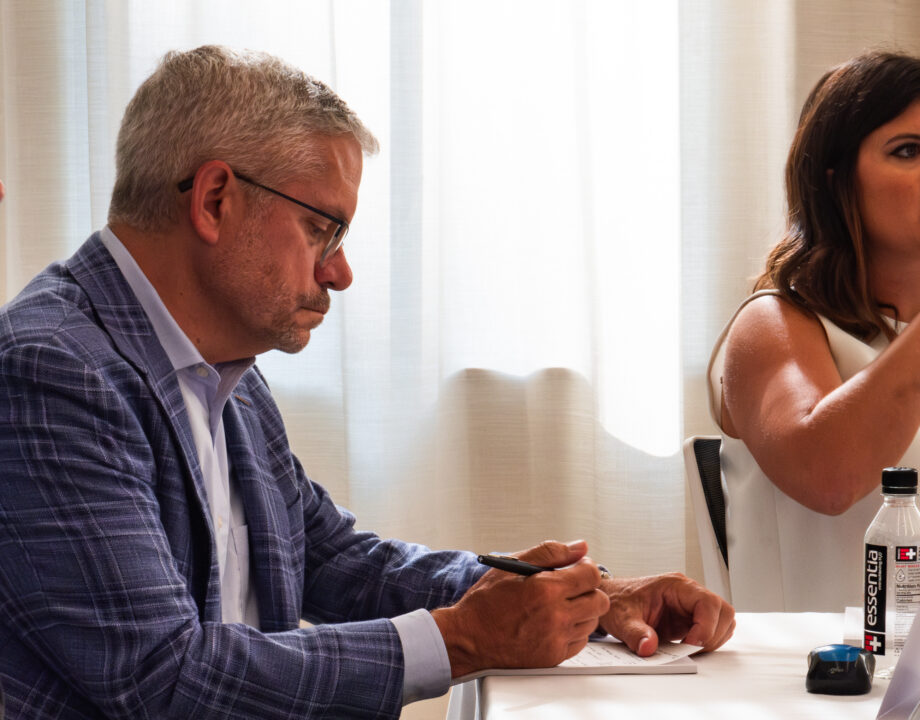

Design Core Detroit plays a pivotal role in shaping Detroit’s creative landscape by supporting the growth of the city’s design community. As the organization responsible for stewarding Detroit’s designation as a UNESCO City of Design, Design Core works to promote the city’s rich design heritage while fostering innovation across multiple disciplines, including interior design, architecture, and industrial design. Through initiatives like the Detroit Month of Design and the development of educational and networking programs, Design Core Detroit provides a platform for local designers and businesses to collaborate, share ideas, and showcase their work within the city. However, for Design Core’s efforts to have a lasting impact, securing long-term funding and support from Detroit’s business and design leaders is crucial. By partnering with local businesses and industry stakeholders, Design Core can expand its programs, attract global attention, and fuel Detroit’s continued creative and economic revival.
As Detroit continues to grow as a UNESCO City of Design, its interior design community plays a crucial role in shaping the city’s identity. Participants in the roundtable discussed how interior design and architecture firms contribute to Detroit’s overall creative landscape, particularly through the restoration and repurposing of its historical buildings. With Detroit’s rich architectural history, interior designers and architects are tasked with preserving the city’s legacy while incorporating modern design elements that appeal to contemporary tastes. While the UNESCO designation has helped raise awareness about Detroit’s creative industries, there’s still more that can be done to highlight Detroit on an international scale. By showcasing more projects through events like the annual Detroit Month of Design, the city can attract attention from both national and international design communities.
As Detroit continues to grow as a UNESCO City of Design, its interior design community plays a crucial role in shaping the city’s identity.
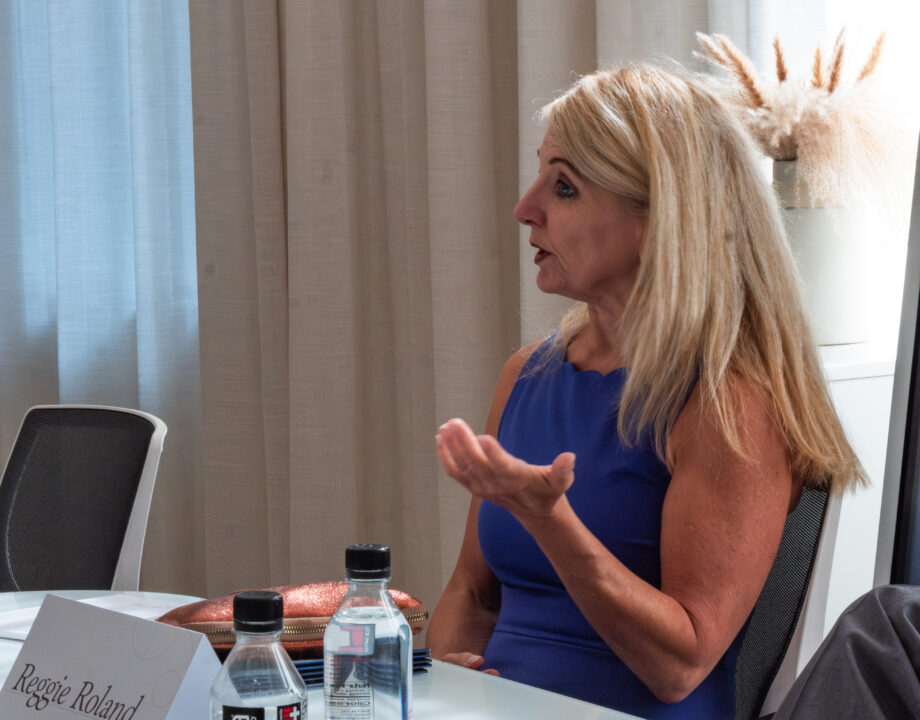
Education is critical to the continued growth of Detroit’s design sector. D’Wayne Edwards, president of the Pensole Lewis College of Business and Design, emphasized the importance of providing educational opportunities in design, particularly for underrepresented communities. As the only historically Black college focused on design in Michigan, Pensole Lewis College is helping to diversify the city’s creative workforce, particularly in fields like design. Several participants noted the importance of fostering stronger relationships between educational institutions and the Detroit design industry. By creating clear pathways from education to employment, Detroit can ensure that young designers are trained and ready to contribute to the city’s booming scene.
As Detroit’s creative sectors continue to expand, discussions about formalizing design districts within the city are gaining traction. The growth of areas such as Capitol Park has sparked conversations about establishing more centralized hubs for interior design and other creative disciplines. As interior design and architecture firms increasingly set up shop in these areas, Detroit’s creative community is becoming more interconnected, helping to spur innovation and attract new talent. Melissa Dittmer, Head of Place at Michigan Central, expressed that while designated design districts could be beneficial, organic growth is equally important. Detroit’s designers are deeply embedded in the city’s unique character, and many believe that allowing these hubs to develop naturally will better reflect the city’s eclectic style.
The economic impact of interior design and other creative industries in Detroit cannot be overlooked. As the city continues to attract attention for its innovative design projects, the design sector is contributing significantly to the local economy. By transforming both residential and commercial spaces, Detroit’s creative firms are not only enhancing the city’s aesthetic appeal but also driving business investment and tourism. Dittmer highlighted the immense potential of design tourism in Detroit. Visitors from around the world are drawn to the city’s historic architecture and modern design innovations, making creative industries a key driver of Detroit’s tourism industry. With Detroit’s UNESCO status, the city has the opportunity to further capitalize on its design assets.
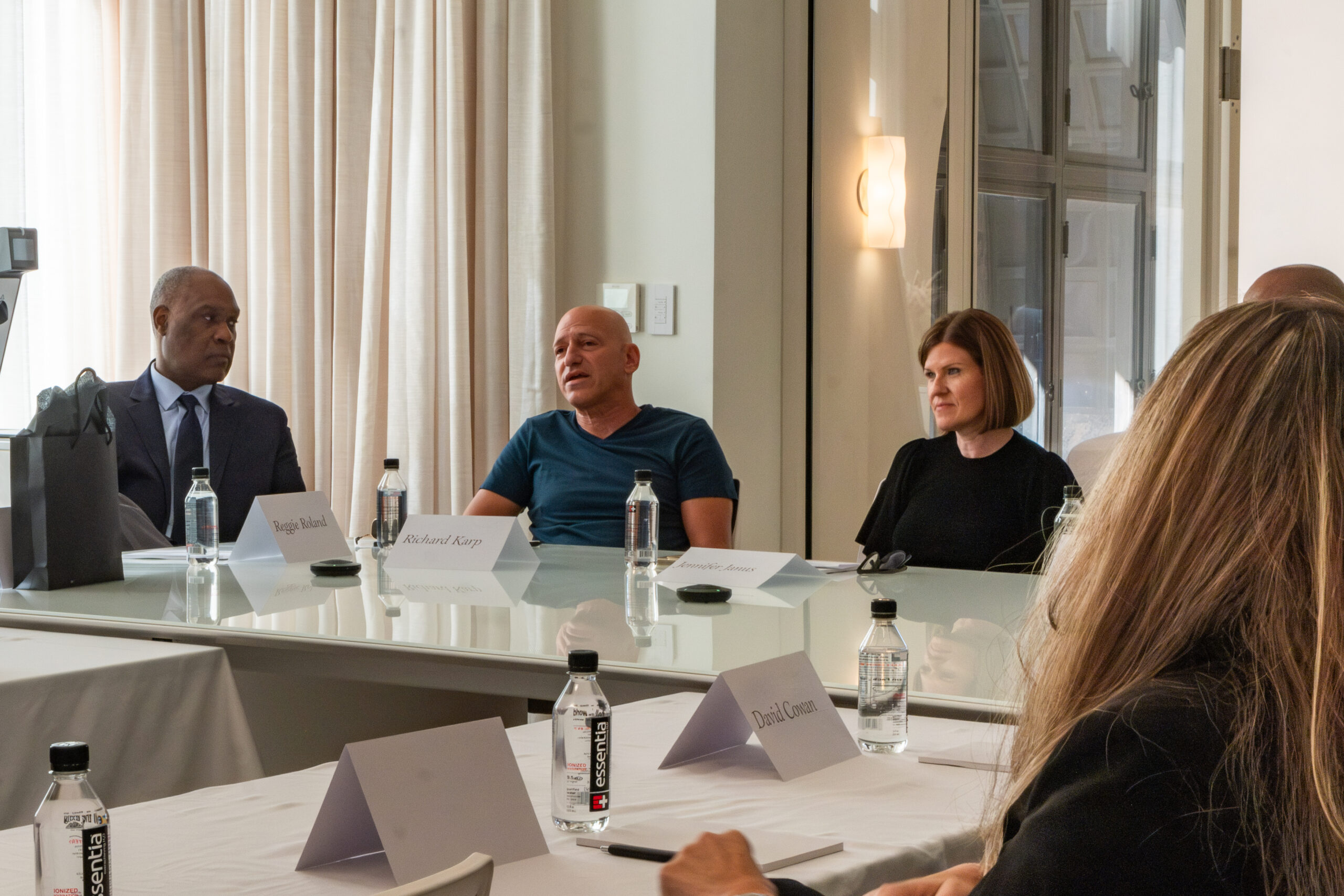
Detroit’s interior design community is integral to the city’s creative renaissance. As the discussion at the roundtable revealed that collaboration, education, and investment in public spaces will be key to the continued growth of Detroit’s creative industries. With its rich history and a growing number of design firms, Detroit is well-positioned to become a global leader in design and innovation. The city’s UNESCO designation provides a unique platform for showcasing its creative industries, and with continued support, Detroit’s designers and creative leaders can help elevate the city to new heights on the international design stage.
Next Story
